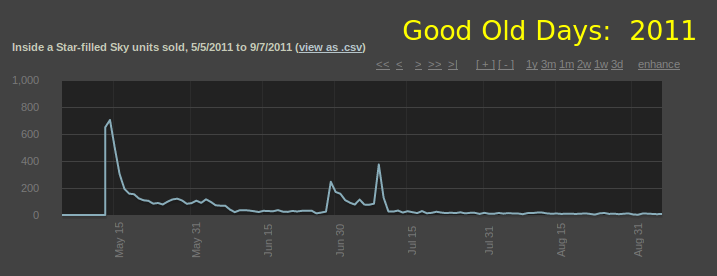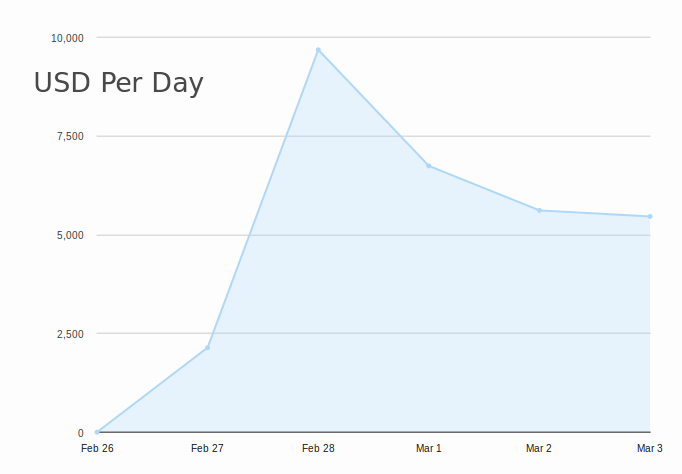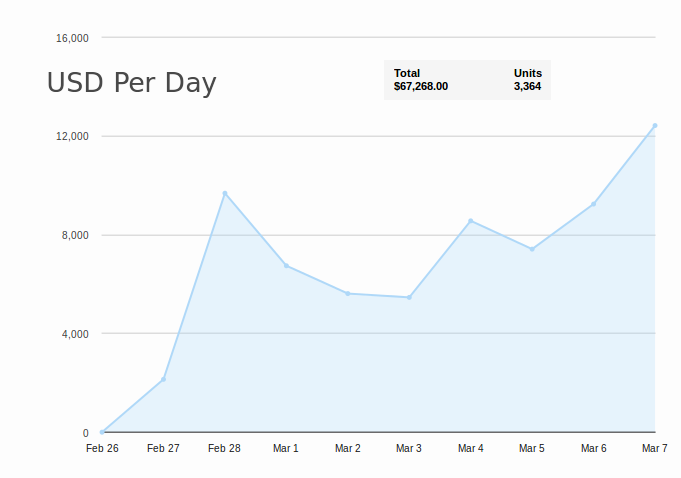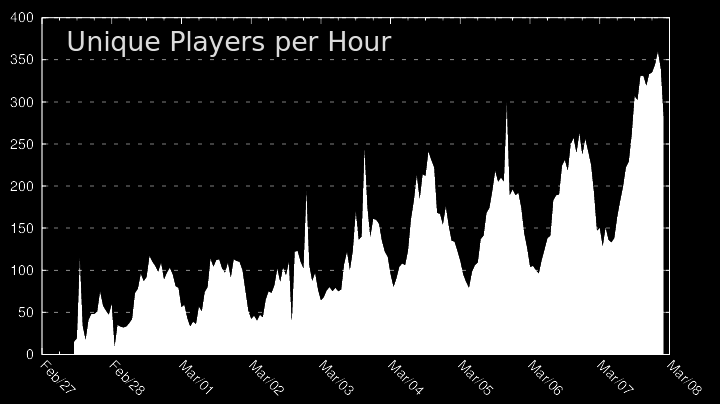Launching a game Off-Steam: Sales number from Week 1
March 9, 2018
I've heard it many times, from both friends and strangers alike (and even a bit from my spouse): "Jason, don't you think you're nuts for not releasing this game on Steam?" Steam has changed a lot over the years, though.

Back in 2011 when my game Inside a Star-filled Sky launched on Steam, Valve worked with me directly to pick a release date that had no major conflicts. My game was the only game that came out that day on Steam. I'll repeat that for emphasis: my game was the only game that came out that day on Steam. It remained on the new release list for almost an entire week, sitting there on the front page of Steam for everyone to see. That exposure helped this otherwise-unknown game sell 649 units on the first day and 704 on the second day, and achieve a peak of 43 simultaneous players on day two. For me, at the time, those sales number were huge and career changing. Of course, the normal drop-off and long tail followed, with occasional spikes during the sales that I participated in. But the biggest influx of players and revenue came during launch.
Fast-forward almost seven years. On Tuesday, February 27, 2018, I counted 83 games launching on Steam that day, the same day that I launched One Hour One Life off Steam.
Steam still has a lot to offer: a huge install-base of dedicated players, a channel for games to spread virally (because you see what your Steam friends are currently playing), and a top-notch player-submitted review system. And of course, some players "just don't buy games that aren't on Steam."
Some people even claim that no game released off-Steam could ever be successful. Such games, it would seem, are doomed to failure.
However, we have to keep in mind that the very most successful games of all time on PC have never been on Steam and will never be on Steam: Minecraft, League of Legends, Overwatch, and Hearthstone.
Minecraft is a great example: the order form, as I originally encountered it back in the day, was worded in Swedish, and the price was only listed in Euros. The point is, if a game is good enough and attractive enough, players will overcome their hang-ups and find a way to buy it, even if it's not on Steam. My goal is to make a game that's so good that it won't matter. Shouldn't I be trying to make a game that is just that good?
Finally, I certainly might have doubled or even tripled my first-week sales numbers if I had launched on Steam. But, as a solo developer, I'm barely able to keep up with the demand and influx of players as it is. I'm doing personal tech support and community management. There were a few show-stopping bugs on certain platforms that I didn't catch before launch. The servers are already half-full, and it will be time to get more up and running soon. This kind of game---a super-complicated multi-server, multi-platform, multiplayer game---pretty much requires a slow roll-out.
Another big difference is the nature of the "games press" these days compared to seven years ago. Back then, every news and review outlet covered Inside a Star-filled Sky at launch. I had an even bigger press response to The Castle Doctrine a few years later.
But in the mean time, the game press essentially vanished. Some websites don't exist anymore. Others are helmed by skeleton crews. Still others have shifted focus and pretty much don't talk about new games anymore.
Thus, to get the word out about my launch, I was really depending on Twitter and my 19K-member mailing list. However, email, as you're probably aware, is riddled with delivery issues. I'm paying for services that supposedly ensure inbox delivery, but they don't work very well.
All these factors conspired to make my launch numbers pretty sad:

Oh crap, look at that! The exponential decay curve was already kicking in just a few days in. Was it all down-hill from here? If so, the future of the game was bleak, because the top of the hill wasn't very high at all, relatively speaking. 484 units.
But if the games press isn't relevant anymore, how do people find out about new games? There are two ways: word of mouth, and YouTube videos. Word of mouth has always been the most important factor for any game, I think. When your friends keep playing a game and keep talking to you about it week after week, you are much more likely to buy the game yourself.
YouTube is a comparatively new factor, but it's a bit like crowd-sourced word of mouth, and also a form of try-before-you-buy. You watch someone else kick the tires so that you know what you're getting into.
But here's the thing: some games are way better at generating word of mouth and YouTube videos than others.
What kind of game generates the most word of mouth? A game that players tend to play long-term, week after week, month after month. Your friend will talk about it this week, and next week, and the week after that. Your friend will just not shut up about this game.
If your friend is still playing months later, it's likely that the game is somehow generating an endless supply of unique and interesting emergent situations. And guess what? That kind of game also makes for great videos. Each video can show people something from the game that they've never seen before.
A game that doesn't have these properties depends on buzz at launch to sell. It also depends on the critical mass that Steam can bring, to give it a chance to go viral during the brief window that people are collectively playing it.
But the press is gone, so buzz is much harder to generate, and Steam is crowded, so going viral there is much more uncertain.
The new world of video game success seems to be happening mostly outside the game press and independently from the impact of Steam's crowded new release list.
I designed One Hour One Life intentionally to operate well in this new paradigm. It is, hopefully, a unique-situation-generator, down to its core, and it's endlessly replayable. It also generates unique situations at a kind of meta level, because civilization collectively advances even when you're not playing. If you make another video next week, it will show something quite different from the video that you made last week.
But these things take time to cook and build. Word of mouth isn't instantaneous. YouTube videos take time to make. To my shock and happy surprise, the downward trend started reversing a few days after launch:

Until finally, today, I had my best sales day ever, by a large margin, a full week after launch.
The Castle Doctrine was a pretty huge hit for me, relatively speaking. It generated a lot of press buzz and word of mouth, and it managed to bring in something like $70,000 in the 11 months that I sold the alpha through my own website, before launching on Steam. But yeah, that was over eleven months.
I realized today that in just over a week, One Hour One Life has brought in nearly as much as what The Castle Doctrine brought in over 44 weeks. And The Castle Doctrine's graphs, both on and off Steam, always had the classic exponential fall-off after the launch spike.
So what's happening here?
Well, YouTube has been a huge factor, as several 100K+ view videos started getting posted a few days after launch. The comments on these videos are telling, with many people begging the YouTuber to make more videos about the game. And some of those YouTubers have. Some are on their third video at this point, with each video thrusting them into new and interesting situations.
But the other factor is that the players who started playing the game around launch are still playing the game and talking about it a week later. They are not "finished' with the game. They haven't moved on.
I'm getting ready to put out the second of my weekly content updates since launch, but even without my input, the game world is changing as civilization advances, making it worth coming back to. Thus, the critical mass of hourly active players is growing:

Given that I've been working on this game for three years already and have at least two more years of work to go, the revenue generated by this game during launch week has not come at all close to making it a financial success. However, it does look like it might be operating in a new paradigm of public interest in games, which is a slow build up to steady growth over the long haul.
|
|
|